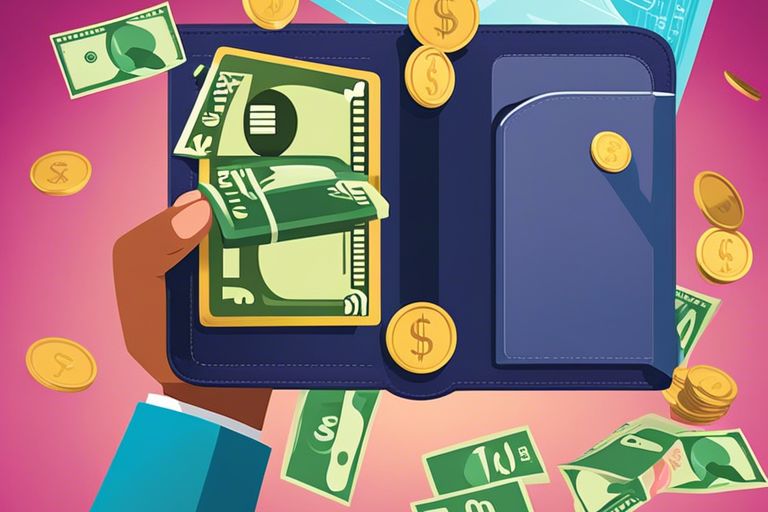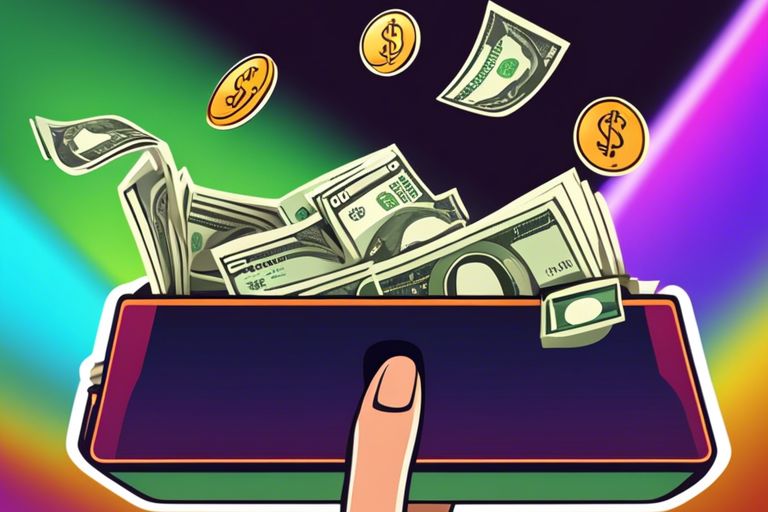Many dream of unlocking a secret formula for achieving instant cash dash when financial emergencies strike. In this empowering guide, you will discover practical steps to swiftly boost your finances, tapping into quick and easy methods that can make a significant difference in your monetary situation. Say goodbye to financial worries and hello to a more secure future with these actionable tips.
Identifying Your Financial Goals
While initiateing on your journey to achieve an instant cash dash, the first step is to clearly define your financial goals. By identifying what you want to achieve financially, you can create a roadmap to reach your desired outcomes.
Defining Your Financial Objectives
Your financial objectives should be specific, measurable, achievable, relevant, and time-bound. Whether it’s saving for a house, paying off debts, or investing for retirement, setting clear objectives will help you stay focused and motivated to take the necessary steps towards financial success.
Prioritizing Your Needs vs. Wants
On your quest for an instant cash dash, it’s crucial to distinguish between your needs and wants. Your needs are imperative for survival and basic well-being, such as food, shelter, and healthcare, while wants are things that are not imperative but desirable.
Financially, it is important to prioritize your needs over your wants to ensure that your imperative expenses are covered before indulging in discretionary spending. By prioritizing your needs, you can allocate resources effectively and avoid overspending on non-imperative items.
Assessing Your Current Financial Situation
If you’re looking to make an instant cash dash, the first step is to take a close look at your current financial situation. This involves evaluating your income, expenses, and overall financial health to identify areas where you can make quick improvements.
Taking Stock of Your Income and Expenses
Your first task is to calculate your total monthly income. Include your salary, any side hustle earnings, and passive income sources. Next, list all your monthly expenses, including rent or mortgage, utilities, groceries, and any subscription services. Be sure to also account for discretionary spending on non-important items like dining out or shopping.
Identifying Areas for Improvement
To improve your financial situation quickly, look for areas where you can cut back on expenses. Consider eliminating non-important spending, such as cutting cable or dining out less frequently. You can also look for ways to increase your income, like taking on extra work or selling items you no longer need.
Current assessments should focus on identifying any wasteful spending habits or unused subscriptions that can be eliminated. By making small changes to your financial habits, you can quickly free up extra cash to build your savings or pay off debts faster.
Creating a Budget for Instant Cash Flow
Little steps can lead to big changes in your financial situation. The first step towards achieving an instant cash flow is creating a budget that works for you. By carefully managing your income and expenses, you can ensure that you have enough money to cover your immediate needs and start building your savings.
The 50/30/20 Rule: Allocating Your Income
Any successful budget starts with a clear plan for how you will allocate your income. The 50/30/20 rule is a simple and effective guideline to help you manage your money. According to this rule, 50% of your income should go towards necessities such as housing, utilities, and groceries, 30% towards discretionary spending like dining out and entertainment, and 20% towards savings and debt repayment. By following this rule, you can ensure that you are prioritizing your financial well-being while still enjoying some flexibility in your spending habits.
Cutting Unnecessary Expenses
With a keen eye for detail, you can identify areas where you can cut back on expenses to free up extra cash. This may involve canceling subscriptions you no longer use, cooking at home more often instead of eating out, or shopping for vitals in bulk to save money in the long run. By making small adjustments to your spending habits, you can make a big impact on your financial health.
Increasing Your Income Streams
Selling Unwanted Items for Quick Cash
Cash in on items that are gathering dust in your home by selling them online or at a garage sale. Look for clothes, electronics, or furniture that you no longer need and turn them into quick cash. Take high-quality photos and write detailed descriptions to attract potential buyers. This simple method can help declutter your space while padding your wallet at the same time.
Freelancing or Gig Economy Opportunities
Your skills and talents can become a lucrative source of additional income through freelancing or participating in the gig economy. Websites like Upwork, Fiverr, or TaskRabbit offer a platform for you to showcase your abilities and find paid gigs. Whether you excel at graphic design, writing, or pet sitting, there are countless opportunities to monetize your skills on your terms.
While entering into the world of freelancing or gig economy work can be exciting and rewarding, it’s important to carefully vet potential clients or gigs to ensure you’re compensated fairly for your time and effort.
Asking for a Raise or Promotion
Selling yourself to your employer by highlighting your contributions and value to the company can lead to a well-deserved raise or promotion. Schedule a meeting with your supervisor to discuss your accomplishments, skills, and future goals within the organization. Be prepared to make a strong case for why you deserve to earn more money or take on a higher position. Recall, the worst they can say is no, but taking the initiative to ask shows your dedication and ambition.
Income increases from asking for a raise or promotion can have a significant impact on your overall financial health. By taking the proactive step to advocate for yourself, you not only potentially boost your income but also demonstrate your value within the company, paving the way for future advancement opportunities.

Managing Debt and Credit
Paying Off High-Interest Debts First
To manage your debts effectively and take control of your finances, start by paying off high-interest debts first. Identify the debts with the highest interest rates, such as credit card balances or personal loans, and focus on paying them off quickly. By tackling these debts first, you can reduce the amount of interest you are accruing and free up more money to put towards other debts or savings goals.
Building a Positive Credit History
With a positive credit history, you can access better loan terms and interest rates, ultimately saving you money in the long run. Make sure to pay your bills on time and keep your credit card balances low to demonstrate responsible financial behavior to creditors. Regularly check your credit report for any errors and work on improving your credit score by using credit responsibly.
Debt management and credit building are crucial aspects of achieving financial stability and increasing your overall financial well-being. By effectively managing your debts and building a positive credit history, you can pave the way for a healthier financial future.

Building an Emergency Fund
Despite your best efforts to budget and save, unexpected expenses can still arise. This is why building an emergency fund is crucial for your financial well-being. Setting aside a safety net ensures that you have a cushion to fall back on in case of emergencies.
Setting Aside a Safety Net
Any time you receive extra income, whether it’s a bonus from work or a tax refund, consider putting a portion of it into your emergency fund. Setting a goal to save at least three to six months’ worth of living expenses is a good starting point. Keep in mind, this fund is meant for true emergencies, such as unexpected medical bills or car repairs, not for discretionary spending.
Avoiding Lifestyle Inflation
Aside from building your emergency fund, it’s important to avoid lifestyle inflation. When you receive a raise or a windfall, it can be tempting to upgrade your lifestyle by splurging on fancy dinners or luxury items. However, this can quickly derail your savings goals and leave you vulnerable to financial setbacks.
Final Words
So, now that you’ve learned how to achieve an instant cash dash with these quick and easy tips, it’s time to put them into action. Do not forget, financial success is within your reach if you stay disciplined, focused, and determined. Whether you’re looking to save up for a dream vacation, pay off debt, or simply build your savings, these strategies can help you reach your goals faster than you ever thought possible. Start implementing them today and watch your financial situation improve before your eyes. You’ve got this!
FAQ
Q: What is meant by an instant cash dash?
A: An instant cash dash refers to quickly and easily obtaining a sum of cash in a short period of time, usually through means such as selling items, taking on odd jobs, or utilizing online platforms for quick payments.
Q: How can I achieve an instant cash dash?
A: To achieve an instant cash dash, you can consider selling unused items on online marketplaces, participating in paid surveys or focus groups, offering services such as pet sitting or lawn care, or even driving for ride-sharing services for quick payouts.
Q: Are there any risks involved in trying to achieve an instant cash dash?
A: While there are opportunities to make quick cash, it’s important to be cautious of potential scams or illegitimate offers. Always research any platform or individual you are dealing with, and never provide personal information or payment upfront without verifying the legitimacy of the opportunity.